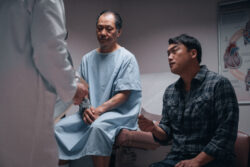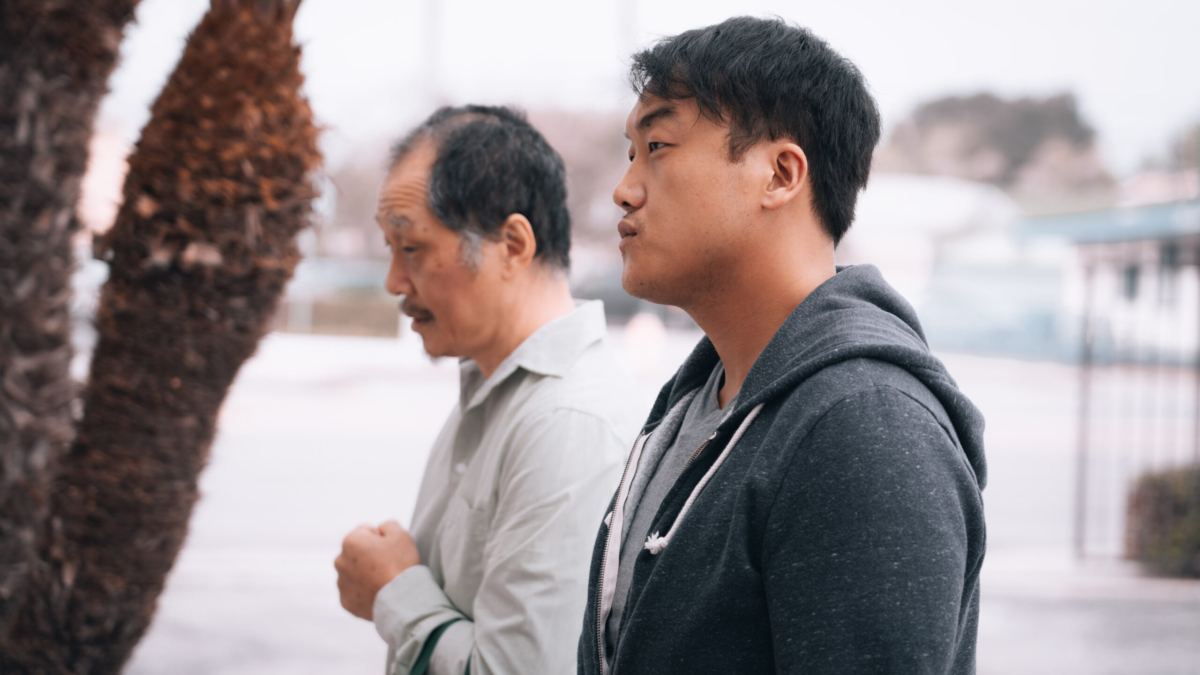Actor Perry Yung helps heal the hurt between father and son in ‘The Harvest’
Perry Yung is no stranger to characters who live in darkness. Having skillfully played period piece villains such as Father Jun on Cinemax’s “Warrior” and Ping Wu on “The Knick”, Yung has also taken on complex characters whose humanity operates in stark contrast to their actions. In Doua Moua’s semi-autobiographical “The Harvest,” Yung brings life to the character of Cher, a Hmong father eroded by Confucian values, patriarchal standards, and the falsehood of the American dream. Cher’s worsening health becomes the central conflict for the characters in the film. Cher’s brooding son, Thai (played by Doua Moua), grapples with his duty to his family and self-preservation amidst disease, deception and heartbreak.
“I kept telling Caylee that I wanted Cher to be someone that audiences can root for,” Yung explained, “even though he’s clearly the antagonist.” Yung points to Cher as a representation of how patriarchal norms in Hmong culture can stifle our ability to give and receive love. Cher, in response to his kidney failure, refuses to take medication, thwarts care from his wife and children, and rebukes the hopes and aspirations of his children. Though Cher has had brushes with death, those moments provide only short-lived glimmers of hope: when Cher witnesses another dialysis patient’s pain, we see a spark of an idea behind his eyes. We hope that Cher will finally connect with his family, but instead, he becomes fixated on marrying off his 17 year-old daughter ‘so she has someone to protect her when he is gone.’ Such father figures are deeply relatable to the Asian American community but often underrepresented, especially in the Hmong community.

Yung prepared for his role by getting to know members of the Hmong community, attending events and even sharing meals. “So much of Hmong culture is in the food,” Yung says, “and when I asked where I could find Hmong food in New York, everyone said there wasn’t a single restaurant. So they invited me into their homes for dinner, and it was incredible.”
It became imminently important to Yung to portray Cher as a character whose resistance to change is both realistic and moving, especially in the context of Asian American film. “He may not be capable of change, but if we can get one crack in his armor, that’s something to hope for,” Yung explains. Representations of Asian American families in film often portray healing as righting wrongs and gaining the strength to say sorry. But for Yung, the story of Cher and his family has more complexity to it, for it falls short of a family super-reunion, as we have also seen in “Shang Chi: Legend of the Ten Rings” or “Everything, Everywhere, All at Once.”

The bittersweet story is what makes “The Harvest” such a successful film: Cher’s story is not one of retribution, restoration or revival. It is the story of a man whose struggle to square the disappointment of the illusory American dream with his own expectations holds him back from love. It is the story of how change may not always happen on a grand scale, but how one crack in the armor can let love in. It is the story of someone we know.
“The Harvest” screened at the 46th Asian American International Film Festival.

